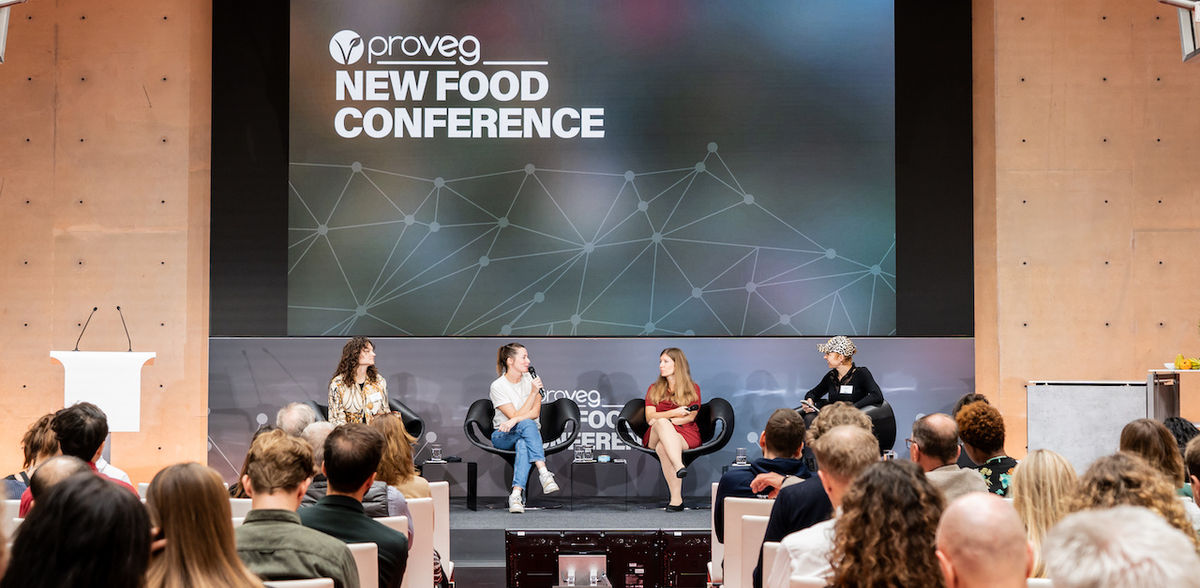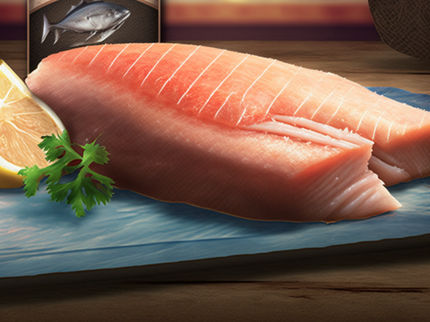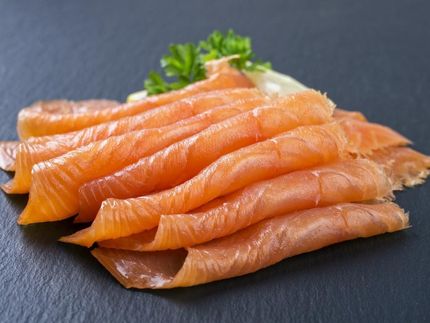What goes on the shelf is what gets eaten
Advertisement
The climate crisis is pressing, meat consumption is falling in Germany, and retailers are lowering prices for plant-based alternatives: The food industry is on the move like never before. A trend report from the international New Food Conference in Berlin.
Lidl, Burger King, Wiesenhof, Rewe, Unilever - on October 25 and 26, around 300 "foodies," mainly from industry and retail, discussed at the futuristic Axica conference center in Berlin and online how the transformation of our food system can succeed quickly. Pure plant-based foods? Cultivated from animal cells? Or fermented on a fungal basis? What are the hurdles and how can they be overcome? The five most exciting trends:
1. indulgence at no extra cost
According to a price study by the nutritional organization ProVeg, in August a vegetable basket of goods in Germany cost on average only 25 percent more than a comparable basket of goods with animal products. The surcharge for plant-based alternatives has thus more than halved compared to the previous year, but is still too high, especially for households that have to look closely at the price in the supermarket.
In October, Lidl then lowered the prices of some of its vegan private label products to the level of comparable animal products. Kaufland followed suit, Penny and Aldi as well, according to media reports. "This is a milestone, because Lidl's price guarantee creates a strong consumer expectation that we believe retailers will find difficult to disappoint," comments Dirk Liebenberg, one of the study authors.
"The price guarantee is also likely to have an impact on the prices of branded products," Liebenberg adds. "This is especially true if demand for plant-based alternatives increases noticeably as a result of the price adjustments and other retailers and manufacturers follow suit." After all, retailers decide what ends up on the shelf - and thus on our plates. But policymakers can also create incentives for a more sustainable diet, for example by lowering tax rates for plant-based alternatives.
2. plant-based out-of-home
Burger King Germany has been selling its veggie burgers at the same price as meat-containing burgers for four years: "Without a price hurdle, guests are quicker to try them," explains marketing boss Klaus Schmäing. In the beginning, the fast-food chain was still "over-buttering," but now it's the volume that does it: one in five Whoppers that crosses the counter today is meatless.
With a growing plant-based range, Schmäing is pursuing big ambitions: "We want to be the Rügenwalder of food service," he says. In 2021, sausage manufacturer Rügenwalder Mühle sold more vegan and vegetarian products than animal meat products for the first time.
Not only branded gastronomy, but also refectories, hospitals, schools and kindergartens are crucial for plant-based catering on a large scale. But many chefs lack the necessary know-how so far. V-Planet from Mecklenburg-Vorpommern therefore supplies hospital groups such as Helios and Vivantes with wholesome plant-based ready meals in organic quality. In 2024, the range is to be expanded, due to high demand.
Baked goods are also an important lever. Be Better My Friend from the Netherlands has developed a plant-based butter alternative specifically for bakeries and pastry shops. Some of the world's best confectioners praise the "Be Better" butter in the highest terms. It is already available in Great Britain, the Netherlands and France.
3. mushrooms - magical superstars
Mushrooms are on the rise as an ingredient for meat and fish alternatives. Their thread-like cell network - the mycelium - comes very close to the texture of meat. It's also rich in fiber, high-quality protein and umami flavor.
Lithuanian startup BioGNR, for example, ferments mushroom protein for plant-based nuggets and burger patties with the fibrous texture of chicken or beef. Esencia Foods blends mycelia with legumes for Europe's first mushroom-based fish alternatives. A fillet à la cod is already available for tasting, and the product is set to debut in restaurants in Barcelona late next year.
Bosque Foods from Berlin uses byproducts from the agricultural industry to grow mycelia for whole bacon strips, pork tenderloins and chicken nuggets. SomaTech from Ireland uses brewer's grains for a mycelial granule as an ingredient. And to enable manufacturers to produce alternative proteins quickly in large quantities in the future, Planetary is planning an industrial fermentation plant in Switzerland.
4 Plant-based - the next level
Whether with or without mushrooms, plant-based alternatives to meat, fish and dairy products are getting better - and more diverse. The vegan tuna fillet from Happy Ocean Foods and the canned "Tu-Na" from Bettafish with pea protein, for example, can easily compete with their animal counterparts in terms of taste, texture and nutritional values. Or the dumplings, gyozas and baos from Haofood in China: The Asian dumplings are purely vegetable and contain more protein and fiber than those with meat.
5. cultured meat
It looks like meat, it smells like meat, but how does it taste? In Germany, cultured meat is not yet allowed to be tasted. In the Netherlands, however, it is - a huge step forward for producers like Mosa Meat, who grow meat from animal cells. They are finally getting the feedback from consumers that is so important for product development.
So far, cultured meat can only be sold in Singapore and the U.S., where the companies Upside Foods and Good Meat received approval in June. However, cultured meat is only available in restaurants and only as an ingredient in otherwise plant-based nuggets, because it is still very expensive to produce. Cultimate Foods, based in Berlin, Germany, is therefore developing a cultured fat that will give plant-based sausages and the like that juicy meaty taste.
Around 160 companies worldwide are currently working on cultured meat and fish. Whether and when the EU will approve the "novel food" is still open. But the pressure is growing: In September, The Cultivated B, a subsidiary of the German sausage manufacturer Infamily Foods, became the first company in the world to apply to the European Food Safety Authority (EFSA) for approval for a cell-cultured meat product.
Note: This article has been translated using a computer system without human intervention. LUMITOS offers these automatic translations to present a wider range of current news. Since this article has been translated with automatic translation, it is possible that it contains errors in vocabulary, syntax or grammar. The original article in German can be found here.



































































